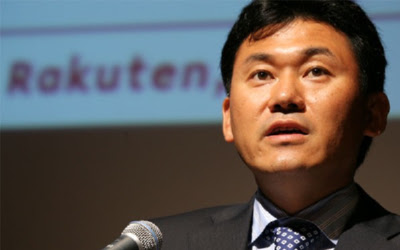As I discussed before ("Japanese and English are Completely Different Languages"), mastering English is very difficult for most Japanese and causes us to think how to overcome this tough task.
In many cases, people spend more time for learning English by reducing time for learning Japanese, which is criticized. Ideal approach is to master both Japanese and English, but capacity of most people is limited and is not expanded, so we need right balance of our commitment.
Lots of discussions to find right way to deal with English have been going on, but unfortunately, most of those discussions seem to me not productive. Most Japanese still can't find answer for how to prioritize learning English in their lives while Japanese are further delaying to master English, compared to some of other countries' peoples.
In such a sluggish situation, some Japanese companies have made the big step by choosing English as their official language. These companies include Uniqlo (apparel) and Rakuten (EC commerce). In my view, they both are rapidly expanding their businesses to overseas and occasions to deal with foreign countries are also increasing. The decisions to make English as their official languages seem to be "top-down" from their leaders, taking into consideration necessities of English in their businesses.
 |
| Mr. Yanai - Uniqlo |
 |
| Mr. Mikitani - Rakuten |
Now other companies and maybe the whole Japanese society are paying their attentions to these two companies. I think if Uniqlo or/and Rakuten succeed in their attempts, then many others would follow to implement the similar idea into their business, which is very "Japanese" way meaning not becoming a first one but just following others doing...
I used to work at a company in Tokyo, which I think uses English most in Japan. For example, meetings are done in English if there is just one non-Japanese although there are 100 Japanese. I have a favorable view for the two companies' decisions to implement English as I believe using English is the first thing to do rather than repeating unproductive arguments towards English.
And I am almost sure that their attempts succeed in as I think a reason why Japanese are not making an effective commitment for English is because many people in the Japanese society, who are not good in English, do not want to move towards English and become resistance for any movements. So, once drastic decision is made like this time, I think things should move OK.
No comments:
Post a Comment